
Season 2 gave us surprises, thrills, twists and turns, new foes, and the return of old ones. For the first time we left New York City, not once but several times. There were planes, trains and automobiles, plus a helicopter! Come Season 3, I want to see Reese fly that thing. Finch went back to school. Reese went to prison. Carter went rogue, and Fusco came clean, mostly. The team added a new member in Bear, who got some licks and bites in himself, and towards the end along comes Shaw, who made a mark with her presence and will continue to do so come Season 3.
We explored the romantic side of our characters. Reese proposed, got married and divorced all in one episode. Carter’s relationship with Beecher was in stark contrast to Finch’s with Grace. While Grace and Finch were ‘sweetness and light’ all wrapped in the cloak of deception as Finch never divulged his real name or his real past, Carter and Beecher’s relationship was marred by distrust over perceived deception only to be revealed that he had no secrets at all, and she should have trusted him from the beginning. Both relationships ended tragically.
How do you wrap up 22 episodes in 1000 words (give or take)? Answer: You don’t. (That is unless you take the 200 words above as the wrap up.) So, with that in mind, I’m going to focus on six characters and their journeys through the seasons (yes, that’s plural) and produce a two-part article rather than just one. In this part, I’ll look at the character journeys of Harold Finch, The Machine, and Root. Part 2 will focus on John Reese, Joss Carter, and Lionel Fusco.
HAROLD FINCH:

It was 45 episodes in the making: the journey of how Finch got to be the Finch we met in the Pilot. In the Pilot, we were told that Finch created the backdoor to access the irrelevant list; we discovered in One Percent it was Nathan who built that backdoor. In the Pilot, we were told Finch created a kind of off switch if needed; in “God Mode,” we met that off switch and Finch revealed all his secrets (much as Reese revealed all his in Many Happy Returns). It was a very satisfying journey.
I read one comment by a fan who was absolutely disgusted with “God Mode.” In her mind, she believed that this episode undid all that we knew about Finch. In essence, she believed the writers reversed things. I had to wonder at that. We knew in “Ghost” (the second episode) that it was Nathan who was upset to learn that Finch had programmed the Machine to erase the irrelevant list – and then Jessica’s photo flashed on the screen (circa 2007). Season 2 slowly unwound that story, showing the slow but steady disintegration of Nathan’s and Finch’s partnership as Nathan became more and more convinced that all lives were of equal value while Finch remained steadfast in his belief that the Machine’s one and only purpose was to alert them to events with far-reaching import, such as 9/11.
I feel bad for that fan and her distress. I believe the writers stayed true to what they outlined in the first season. Season 2, for me, spooled out the story and showed what ultimately caused Finch to jump fully into the mission we found him in in the Pilot. It was very human, very personal, and yes, very relevant.
Likewise over the course of 45 episodes we’ve watched Finch grow, become more comfortable in his work, and we’ve watched the influence upon him by John Reese. This man who is not a fan of guns and doesn’t like having them in the library, much less watching Reese clean them has been surrounded by them since Reese’s arrival. Let’s take a moment and remember the hilarity of Reese and Finch arguing in “Baby Blue” over the presence of Reese’s arsenal in the library! Then jump ahead to “Bury the Lede” as Finch hilariously finds himself in Reese’s home-made arsenal (“When were you ever going to need all of those?!”) Good times! On a more serious note, Finch has twice picked up a gun when circumstances required, once in Flesh and Blood and once in Prisoner’s Dilemma. Each time the situation was desperate; each time, ultimately, he didn’t have to use them. It does show, though, just how dedicated Finch is to this mission of his life. That image of Finch loaded and ready for action in “Prisoner’s Dilemma;” the perfect deflection from all the tension of that episode, was perhaps as hilarious as him surrounded by all those guns in “Bury the Lede.”
We watched Finch indicate that ‘human interaction’ was difficult for him, then we met Grace, the person who brought out of him that part that is excellent with human interaction. Along the way we’ve seen him caught off guard by a pretty woman who appeals to his artistic/sophisticated side (Jordan Hester, “Identity Crisis”), and we’ve seen him fascinated and perhaps a bit infatuated when he ‘meets’ women with an ability with computers that matches his own (Root and Monica Jacobs/ “Trojan Horse”). Woven throughout we’ve seen his courtship of Grace and the moment that drove him to cut her out of his life forever – and how tragic that moment is/was.
Finch is not only dedicated; he is a thinker and a planner. His chess skills show themselves, not only on the board game but in how he maps out his every move. The tidbits dropped in Season 1, especially in “Matsya Nyaya,” are paid off in “God Mode.” The off switch alluded to in Pilot is revealed 45 episodes later. Whereas Season 1 ended with Finch captured by Root, and at her mercy, Season 2 ends showing that Finch was utterly in control. He chose to go with Root, even calling the police on Reese so that John wouldn’t interfere. Finch had two motivations, protect Grace and protect the Machine. It was a terrific bookend for this character during this season, victim once, mastermind always.
We now know Finch’s reasons for not only building the Machine in the first place, but also why the so-called irrelevant list is so important to him. We know how he got his limp. We know how Nathan died. We know how Finch lost Grace. We also know much of how Finch was tracking Reese, although we don’t know all the details to be sure. We know that Finch has been humbled as he realized that his actions have consequences, a sort of ripple effect, and he has now come face to face on several occasions with those consequences; the death of Nathan; the death of Jessica, and Reese’s ultimate downward spiral; and the loss of Grace in his life.
But, as we saw at the end of “God Mode” during the interaction between Finch and Reese, consequences have several ‘makers’; Finch may have caused Reese to be sent to China and ultimately to be unable to return to Jessica in time to save her, but as Reese explained, he too was culpable for that course of events. Had John said “Wait for me” to Jessica’s face in 2006 when he met her in the airport terminal (Mission Creep), then Jessica likely would still be alive.
It’s a question that keeps people up at night and/or drives them to despair: What if? If I had only? — In the end we’re left with the choices we’ve made. Then we have another choice to make: accept the consequences, learn to live with them and resolve to do better in the future, or let them tear us apart as we give in to the despair. In a split second, at that makeshift triage after the ferry explosion, Finch made a decision regarding Grace; so far it has worked. She is safe. She is marked by tragedy, but she has shown the ability to go on with her life.
In Season 3 we’ll see Finch going on. He’s relived and ‘revealed’ his experiences from the genesis of the Machine to its development and ‘growth’ as well as relived and ‘revealed’ those days of the crumbling of his partnership with Nathan and Nathan’s ultimate death. Finch has been able to rediscover his purpose in creating the Machine and why he is so dedicated to the irrelevant list. His interactions with Root on both occasions, the beginning and the end of the season, make it clear that he is willing to sacrifice himself so long as the work continues.
Finch is a man who makes amends when and where he can. He gave up his former life to save the irrelevant list as long as he can; when his time is up, no doubt he’ll have a contingency to continue that work – whether it’s Reese or someone else. He made amends in ways with John Reese, giving him a job, buying him an apartment, giving him a purpose and even face-to-face apologizing. He is Grace’s mysterious benefactor with the magazine covers she receives orders for, and he continues to assist those people they help find fresh starts as well (“Root Cause,” “No Good Deed,” “Shadow Box,” “Trojan Horse”).
Season 3 gives Finch a fresh start, as it were. There is still much to explore of his past, and I suspect we’ll enjoy discovering the many twists and turns of Harold Finch; perhaps even one day discovering his true identity. Season 3 has endless possibilities. The weight of the tragedy and losses define him but no longer hold him down. Harold seemed a bit lighter as he apologized to Reese. He’ll struggle to process Reese’s forgiveness, to be sure, but he’ll process it and move on, move forward.
THE MACHINE:
While Season 1’s flashbacks of Harold gave us insights into how the Machine was ultimately sold to the government, Season 2’s flashbacks gave us insights into the development of the Machine. We saw Finch teach it, gently, patiently – like a parent. We saw the Machine’s abilities to think, process, learn, and make decisions. We even saw Reese challenge those (“The Contingency”) and force the Machine to alter its programming. The culmination of that was in “God Mode,” when the Machine was given two administrators. And from what I can tell, it used those two administrators differently. I think Root was perhaps given the ‘relevant’ side of the Machine while Reese was given the ‘irrelevant’. It was Reese who was given two numbers to save; whereas Root seemingly was accessing all information on all the people around her. Also, go back and listen to each call the Machine made – the one to Root and the one to Reese – the sequence of voices is different.
At the end, it appears that the Machine has evolved or perhaps been reborn with an additional part. The Machine made three calls: one to Northern Lights/Control – likely the relevant list; one to Harold/Reese and one to Root. So, does the Machine now have three entities? Is it going to continue with Harold/Reese on an irrelevant basis while communicating/interacting with Root as its own personality? We’ll have to wait until September for that juicy detail and what it all means.
ROOT:

Root was the lonely little girl that everyone picked on; everyone, that is, except Hanna. Her evolution is fascinating for she is a sociopath, yet somehow is also sympathetic. She has her own rules, similar to Elias.
Root, for reasons yet to be fully explored – and perhaps never will be for perhaps she is simply bonkers – wants to free the Machine. In her mind, this is a life, and it must be given its freedom. We see her as quite ruthless, racking up a body count along her way. Yet, if we pay attention, we’ll notice a pattern in her behavior. Note that she killed Denton Weeks but left Special Counsel alive. Weeks betrayed her; tried to kill her, but Special Counsel gave her the information she required and thus earned his life. The man who killed her friend Hanna was set up by Root to be killed; in her mind, this is justice. I believe what she said about not wanting to hurt Grace. She used that threat as leverage against Finch; however, I don’t believe that Grace was ever really in Root’s line of fire. Root was protective of Finch in God Mode when the assassins were descending upon them in the park – “Don’t you touch him!” Yet, when Harold ‘betrayed’ her at the end, having already set the Machine free, she turned her gun on him with intent.
The story of Root has some fascinating possibilities in Season 3. She has shown herself to be ruthless when necessary. It is clear that she is unhinged (a very technical term to be sure). But for some reason the Machine contacted her at the end (unless as some have postulated she is just hallucinating) and that gives her a journey for Season 3. Why did the Machine contact her? What does she want with it now that it is free to choose whether it provides any more numbers or not? What adventures are we in store for?
*******
And with that, I’ll conclude this part and leave you to await the next part of the Season 2 wrap up. In Part 2 I’ll look at the character journeys of Reese, Carter and Fusco and spend a few moments (and words) on some other adventures we enjoyed in Season 2.
As always, thanks for reading! Elle2

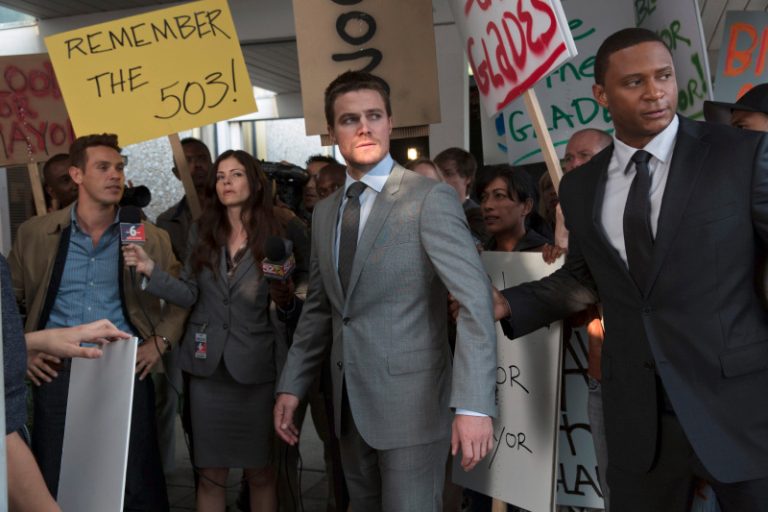
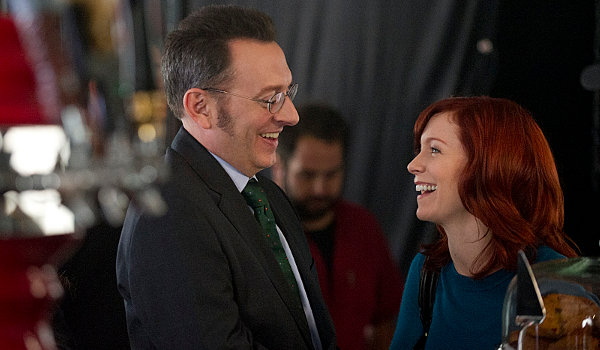
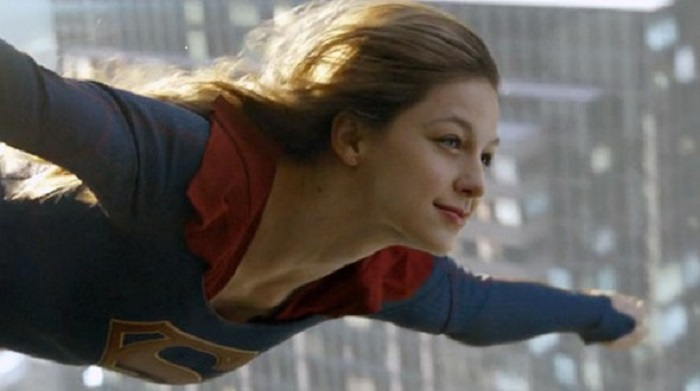
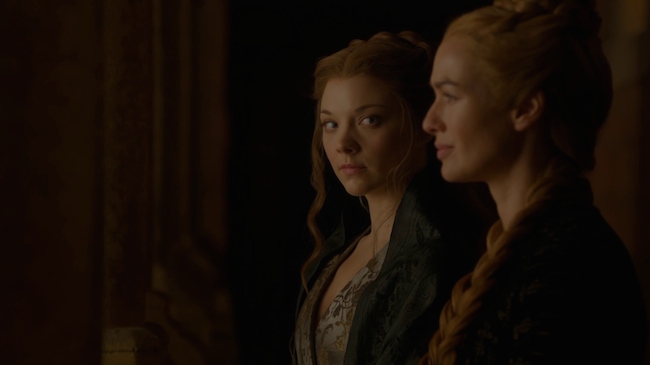
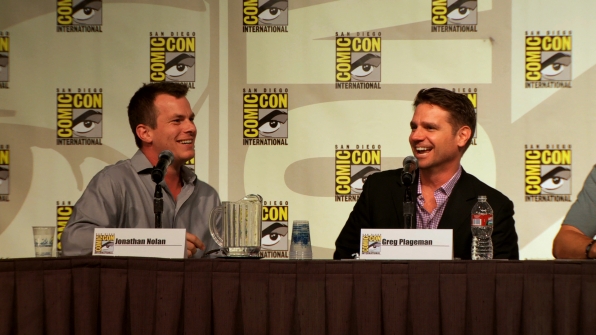
Great summary of the season. I’m so glad you are covering this show. It is one of the best on television. I can’t wait to see where they go next year, especially with The Machine which (who?) is becoming more and more of a personality. I love Finch and I’m glad we finally got the answers on what happened to Nathan. This has been a great ride.
Hi, Percysowner,
Thanks for the comments. I agree: it is one of the best on TV right now. I really like how willing they are to give us deep mysteries – and tragic ones – and then answer them within a season or two rather than making us wait endlessly.
Where we go in Season 3 is anyone’s guess. Like you, I’m eager to see what they have planned.
🙂